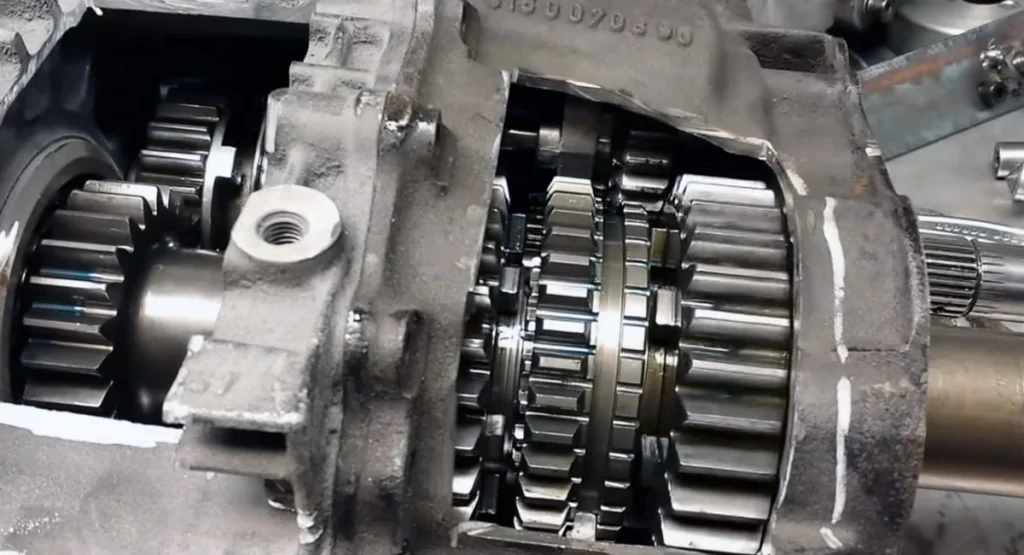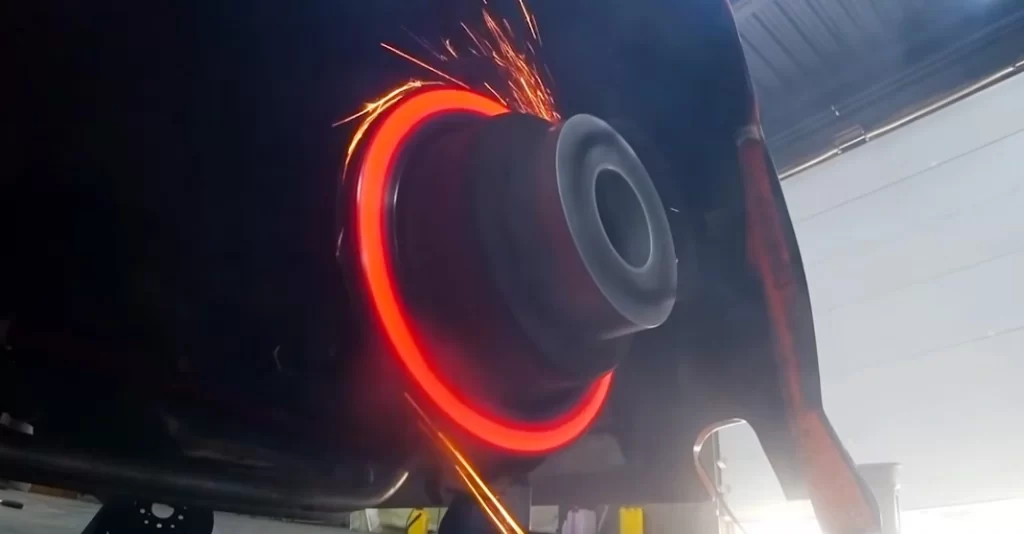There are a variety of reasons why your car makes a noise when you reverse it. However, we’ll focus on two major factors that auto repair engineers frequently bring up: the brake system and the transmission.
When reversing, a malfunctioning brake and transmission system will also cause the car to make noise, so inspect each of these factors carefully. The most common reasons for Groaning Noise When Reversing are,
- The braking system’s problem.
- A problem with the gearbox.
- Take a look at the grease shims.
So, in this article, we discuss almost everything you need to know about the uncommon sounds when reversing.
What causes a groaning noise when reversing?
The following paragraphs explain the most common reasons for the growing noise when reversed. So read them carefully if you are facing the same issue.
Problem with the braking system.
When you reverse the car, worn brakes are the most common source of the noise. When shifting the gear shift into reverse gear, cars can vibrate and make noises. Noise can be anything from a low, creaking sound to a shrill and loud sound. Start looking for issues with your brake system.
Examining the Wear Tabs on the Brakes.
The wear tabs are located near the edge of your vehicle’s brake tabs. Its purpose is to ensure that the braking system is functioning properly so that the car comes to a complete stop when the brake pedals are pressed.
You’ll hear the noises again when these tabs start to rub against the rotor. That is why, if you haven’t driven in a while, car experts advise against starting your vehicle by reversing or taking long trips.
Before you use it again, you should have it checked or serviced. You can expect to hear noises if the wear tabs are not properly positioned when attempting to reverse. The wear tabs must be properly inspected and repaired.
A problem with the gearbox.
Your brakes don’t cause another type of noise you might hear when backing up; instead, it may be a problem with your transmission or CV joints. The noise is caused by the transmission’s inability to completely disconnect from the engine, and the gears continue to spin.
You can reduce the noise by shifting into forwarding gear for a few moments before shifting into reverse. If this method fails, it’s time to have the transmission or clutch inspected and replaced.
Keep an eye out for metal.
You might wonder why cars whine in reverse gear at times. When metal meets metal, a squealing sound can be heard. If there is any small metal part between the rotor and the pads, the car will squeal. Ensure the rotor and pads are clean to avoid any metal parts getting stuck between them.

Take a look at the grease shims.
Grease shims can cause the squealing noise your car makes when reversing. To keep the noise down, these need to be lubricated from time to time.
To avoid any problems with the brake pads, make sure the lubricant is applied on both sides of the greasing shims. Also, don’t use too much grease, or you’ll end up with a large, sticky build-up.
Wheel Bearings That Aren’t Working.
This is most likely the least likely cause of brake noises. You may have a bad wheel bearing if you hear grinding sounds from your wheels or experience vibrations that alternate between loud and quiet.
Brake pads are of poor quality.
Don’t cut corners by buying the cheapest brake pads you can find. Cutting corners on brake pads can mean the difference between a near-miss and a totaled vehicle with serious injuries.
Aside from performance, cheap brake pads are often poorly manufactured, with defects such as metal chunks in the pad material scraping against the rotor and causing severe damage.
Choosing a better brand for your brake pads will save you money in the long run. Akebono, Stoptech, Wagner, EBC, Powerstop, and AC Delco are some of the best brake pad brands.

When reversing, how do you avoid making noise?
Because the brake system is the primary source of noise when reversing the car, proper and regular maintenance of the brake system is a critical factor in eliminating noise when reversing the car.
A high-quality brake system should last between 30,000 and 50,000 miles on average. However, many factors, including the driver’s use, play a role.
The quality of the brake system, the frequency of use, driving style, the load, and the daily condition of the road are all basic factors that affect the life of a vehicle.
If you frequently travel on poor-quality roads, park, and brake suddenly, the brake system’s quality will quickly deteriorate.
The brake tabs will rub against the brake rotors if the brake pads’ surface is worn. As a result, the gaskets of the car will wear out and make a noise that sounds like metal rubbing against metal.
When I shift from park to reverse, why does it make a clunking noise?
Clunking is another type of noise you might hear when reversing, and brake problems do not cause it; instead, it could be a transmission issue or a problem with your constant velocity (CV) joints.
You may have worn CV joints that require a new boot or even a complete replacement. The clunking noise could also be caused by worn motor mounts or a poorly secured engine.
As a result, you should have these components examined as well. The parking pawl could be the culprit if the transmission is the issue.
The purpose of a parking pawl is to lock up your automatic transmission. When the transmission is in the park position, the parking pawl engages. It’s basically a pin that prevents a notched wheel on the output shaft from turning.
Some related FAQs for Groaning Noise When Reversing.
When I back up, why do my brakes grind?
The backing plate makes contact with the rotor or drum as the pads and shoes wear down, resulting in a metallic grinding noise. The brake pads have a metal wear indicator that drags on the rotors when they are worn out. There will be a grinding or squealing noise as a result.
I hear a noise when I reverse; why?
The cause of rumbling when backing up or slowing down could be as simple as the tire tread wearing in a pattern that causes noise, which is most noticeable when driving slowly. You could also have a problem with your rotational wheels, such as an axle or wheel bearing. To figure out what’s going on, a physical examination is required.
How much does brake grinding repair cost?
Most shops will do it for $50 or less, or even free if you have other brake work done at the same time. However, aging brake pads or rotors are more likely, and these repairs become more expensive. The cost of replacing all four brake pads ranges from $150 to $350.
What causes the noise in reverse gear?
Because of the angles, the majority of the load is evenly distributed when the gears rotate. Spurs are cut into reverse gears, which don’t absorb the load as well. As a result, there’s a lot more whining.
Why is it so difficult for my car to reverse?
Similar transmission problems, such as a car that won’t back up in reverse can be caused by dirty transmission fluid or a clogged filter, as you learned with low transmission fluid. Proper lubrication from old fluid or debris in the contaminated fluid will affect how the transmission shifts into reverse or other gear.
We hope you’ve got the answer that you’ve needed for the question, “Groaning Noise When Reversing” reading our explanation. If you have more questions just leave a comment below, and we are really straightforward to help you further. If you need review of the What Does R Mean, check this link for it. Thank you.
